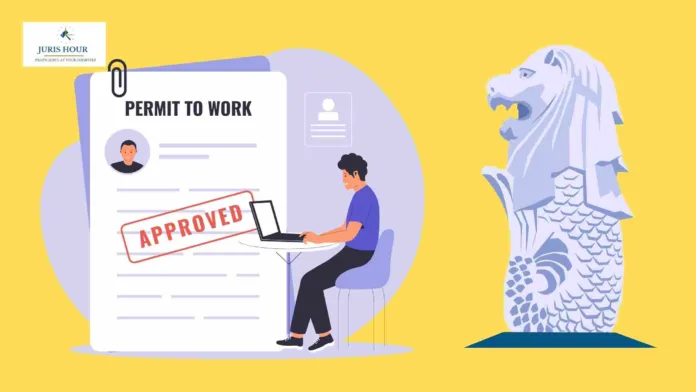Singapore is set to roll out major changes to its work permit framework in 2025, marking a significant shift in its foreign manpower policy. The reforms, announced by the Ministry of Manpower (MOM), aim to attract higher-skilled professionals, strengthen local hiring, and promote sustainable workforce growth.
Key Reforms to Take Effect
1. Salary Floors Raised in Key Sectors
Industries such as construction, marine, and manufacturing will face higher minimum salary requirements for foreign hires. The move is intended to draw more skilled talent, discourage dependence on low-wage labour, and push employers to improve productivity and pay scales.
2. New Age and Skills Criteria
From 2025, foreign applicants for work permits must be under 50 years old, possess relevant qualifications, and have verifiable industry experience. The aim is to bring in future-ready professionals who can make long-term contributions to the economy.
3. Mandatory Proof of Local Hiring Efforts
Employers will be required to provide evidence that they attempted to recruit Singaporeans before turning to foreign candidates. This includes records of local job postings, training initiatives for citizens, and written justification for foreign hires. The measure is designed to ensure fair hiring practices and greater investment in local talent development.
4. Faster, Fully Digital Applications
While entry requirements are stricter, the application process will be streamlined. MOM will shift to a fully online, faster system that rewards complete and well-prepared submissions with quicker approvals. Incomplete or poorly documented applications risk rejection.
At a Glance — Before and After 2025
| Policy Area | Before 2025 | From 2025 |
| Minimum Salary (Key Sectors) | Lower thresholds | Higher thresholds |
| Age Requirement | No cap | Under 50 years |
| Qualifications | Minimal requirements | Industry-relevant education/skills |
| Proof of Local Hiring | General requirement | Detailed evidence required |
| Processing | Manual, slower | Fully digital, faster |
| Workforce Focus | Quantity hiring | Quality and skill-based hiring |
Impact on Employers and Job Seekers
For Employers:
Businesses that depend on foreign manpower must prepare for tighter rules. Securing work permits will require stronger recruitment documentation, competitive salary offers, and measurable efforts in local training.
For Foreign Job Seekers:
The Singapore job market will be more selective. Applicants should ensure their qualifications and experience match industry needs, keep credentials updated, and be ready for stricter document checks. Sectors like technology, engineering, healthcare, and sustainability may offer the best opportunities.
Why the Changes Matter
The reforms are part of Singapore’s strategy to build a resilient, high-value workforce, reduce reliance on low-skilled labour, and prioritise fair wages and innovation-led industries. By shifting from volume-based hiring to skills-driven recruitment, the government aims to maintain global competitiveness while safeguarding opportunities for Singaporeans.
The Ministry of Manpower has urged employers to review their HR policies and job seekers to prepare early. Official guidelines and further details are available on the MOM website.
Read More: PENALTY UNDER SECTION 114A OF CUSTOMS ACT

